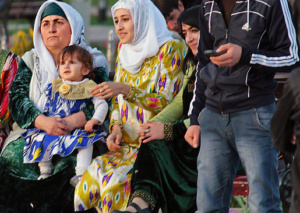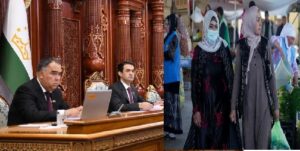Criticize-Biased-Hijab-Ban-300x200.jpg" alt="Muslim students in a church-sponsored school in Isiolo county have lost their bid to wear a hijab in school. (Photo: OnIslam)" width="345" height="230" /> Muslim students in a church-sponsored school in Isiolo county have lost their bid to wear a hijab in school. (Photo: OnIslam)
Kenya, 20 Jumadil Awwal 1436/11 March 2015 (MINA) – A Muslim member of assembly of Kisumu post city on the western Kenya coast has criticized the High Court decision to ban Muslims students from donning Islamic headscarf as breaching freedom of worship.
“The constitution is very clear that one has a right not to be forced to do any act that will contravene his / her belief or religion,” Farida Salim, nominated Member of County Assembly (MCA) told The Star on Tuesday, 10 March.
“If a court can rule that Muslim girls are barred from putting on Hijab then that court is out of order. We must be tolerant, we do not want this country to be polarised along religious lines.” OnIslam quoted by Mi’raj Islamic News Agency (MINA) as reporting.
Muslim students in a church-sponsored school in Isiolo county have lost their bid to wear a hijab in school.
Also Read: UN Experts Warn Right Violations in Kashmir by Indian Authorities
The school is sponsored by the Methodist Church.
On Friday, High Court judge Harun Makau ruled that Muslim girls at St Paul Kiwanjani Secondary School have no right to wear the veils in school as it is contrary to the school’s rules and regulations.
The judge said a decision by the director of education allowing Muslim students in the county to wear hijab and white trousers is discriminatory, unlawful and unconstitutional.
The ruling followed filing a lawsuit by the Methodist Church which complained that the move by the county education office permitting Muslims girls to wear hijab and white trousers had created disparity among students.
Also Read: At Least Nine Children and One Woman Killed in Pakistani Airstrike on Afghanistan
The Muslim MCA criticized the court ruling, asserting that Islamic hijab symbolises culture and peace.
“God’s given rights should not be taken away and we must be tolerant because we do not want this country to be polarised along religious lines,” she said.
Salim confirmed that Christian leaders supported Muslim students’ rights, including acting speaker Gabriel Ochieng who said Islam and its beliefs should be upheld.
There are nearly ten million Muslims in Kenya, which has a population of 36 million.
Also Read: Pakistan Condemns Israeli Settler Attacks in West Bank, Al-Aqsa Storming
Islam sees hijab as an obligatory code of dress, not a religious symbol displaying one’s affiliations.
Scholars believe that it is up to women to decide whether to take on the veil. (T/P007/P3)
Mi’raj Islamic News Agency (MINA)
Also Read: China Criticizes US-Drafted UN Gaza Resolution as Vague, Abstains from Vote

































 Mina Indonesia
Mina Indonesia Mina Arabic
Mina Arabic